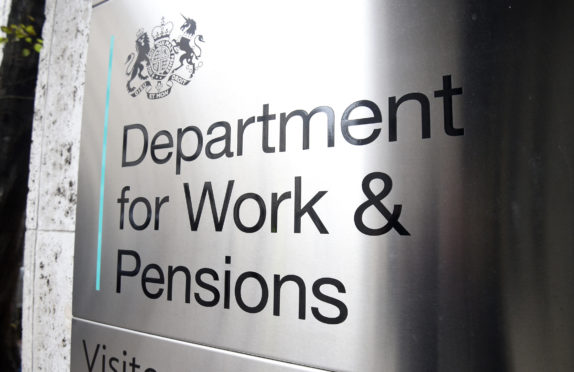
Some 1.9 million adults will be at least £1,000 per year worse off under Universal Credit – while 1.6 million will gain more than this amount – analysis has found.
The Institute for Fiscal Studies (IFS), which made the calculations, said many people will find they “win” and “lose” quite substantially from Universal Credit, with gains and losses varying along with the characteristics of the households affected across the UK.
Universal Credit disproportionately reduces incomes among poorer adults, the analysis found.
Those in the lowest-income 10% of the population on average lose the most from Universal Credit – equating to £150 per year per adult – it said.
But the IFS also expects that of some of the groups who stand to lose out substantially, the losses will only be temporary.
Universal Credit, which is available to some people who are on low incomes or out of work, replaces six other benefits, including child tax credit, income support and income-based jobseeker’s allowance. It is expected to be fully rolled out by mid-2024.
The IFS analysis, funded by the Economic and Social Research Council, looked at which households will lose or gain the most under Universal Credit.
Many of the 1.9 million losing £1,000 per year or more are affected by Universal Credit’s harsher treatment of certain groups, such as those with financial assets greater than £6,000; some self-employed people;
couples where one member is above state pension age and the other below; and some claimants of disability benefits, the IFS said.
Meanwhile, people in working rented households on means-tested benefits are most likely to gain large amounts, the findings suggest.
The research, which looked at the potential effects of Universal Credit over eight years of people’s lives, found that many of those hit hardest in the short-term may only find themselves “temporarily poor”.
After an eight-year period, the number of people seeing a loss in entitlement of at least £1,000 per year falls to 1.2 million under the IFS’s calculations.
People who are self-employed or have significant financial assets are among those more likely to be worse off – but they also tend to be more likely than others on low incomes to find that their period of being on a low income is only temporary rather than persistent, the IFS said.
Some may go from low incomes to earning more money.
By contrast, it said people who are disabled or live with someone who is disabled are particularly likely to be be persistently, rather than temporarily, poor, the research found.
It said the effects of Universal Credit on people with disabilities is particularly significant and complex, with both large giveaways and takeaways depending on their particular circumstances.
After transitional protections have expired, those who would have been entitled to the “severe disability premium”, which is paid to those who generally live alone and struggle with basic living activities, can receive as much as £2,230 per year less in Universal Credit than they would have under the previous system.
But other people whose health is not deemed to affect their basic living activities but does substantially constrain their ability to do paid work can receive £1,120 per year more under Universal Credit, the IFS said.
Tom Waters, research economist at the IFS and an author of the briefing note, said: “The biggest losses experienced as a result of the switch are mostly down to a small number of specific choices the Government has made about Universal Credit’s design, such as its treatment of the low-income self-employed and people with financial assets.
“Many of those very large losses do turn out to be temporary for those concerned.
“However, even when measuring people’s incomes over relatively long periods, Universal Credit still hits the persistently poor the hardest on average.”

Enjoy the convenience of having The Sunday Post delivered as a digital ePaper straight to your smartphone, tablet or computer.
Subscribe for only £5.49 a month and enjoy all the benefits of the printed paper as a digital replica.
Subscribe